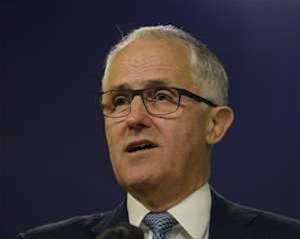Australia's radio frequency spectrum regulation is set for sweeping changes, with a full makeover of the current regime proposed by the Department of Communications.

Thanks to rapidly changing technology and changes in market and consumer preferences over the last decade, the Government believes the current regime is outdated and needs modernisation.
Communications Minister Malcolm Turnbull on Friday said the spectrum review report highlighted the need to simplify the current framework and remove "prescriptive regulatory arrangements" in order to support new and innovative technologies and services.
Introducing spectrum trading as well as simpler and faster processes that remove "excessive regulatory provisions" for spectrum policy and management were proposed in the report, in line with the Government's deregulation agenda.
The Government would like to see a single licensing system introduced based on limited parameters, such as frequency band, geographic area, duration and renewal rights.
Broadcast spectrum planning, licensing and pricing would be integrated into the general spectrum management framework, the report recommended.
With the single licensing system in place, the report also proposed a review of the present spectrum pricing arrangements in order to provide greater payment flexibility.
Changes to regulator ACMA's role are also on the cards - including a requirement for ACMA to act consistently on the Minister of Communications' policy statements that outline the government's strategy and prioritites for radio frequency spectrum.
The report also proposes that the Minister have powers to direct ACMA on general and specific matters, such as planning, allocation and reallocation as well as licensing and pricing of spectrum.
Further, the report suggests civil penalties for more proportionate and graduate enforcement, giving ACMA a wider range of tools than just the criminal sanctions and license suspensions and cancellations it can use currently.
The government wants to move quickly on the spectrum policy framework review, with stakeholder consultation and a consolidated legislative package to be released in September this year.
The final legislative package is expected to pass by early to mid 2016, with the new spectrum policy framework becoming operational from later that year and into 2017.


_(33).jpg&h=140&w=231&c=1&s=0)

_(20).jpg&h=140&w=231&c=1&s=0)
_(23).jpg&h=140&w=231&c=1&s=0)





 iTnews Executive Retreat - Security Leaders Edition
iTnews Executive Retreat - Security Leaders Edition
 iTnews Cloud Covered Breakfast Summit
iTnews Cloud Covered Breakfast Summit
 Melbourne Cloud & Datacenter Convention 2026
Melbourne Cloud & Datacenter Convention 2026
 The 2026 iAwards
The 2026 iAwards











_(1).jpg&h=140&w=231&c=1&s=0)



